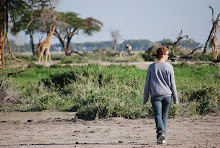To continue my story of Fasika, Easter in Dangila, at 4pm I returned to the house of my fourth invitation of the day. Earlier in the day I was only able to drop in for a brief serving of duro wat, so of course I was expected to come back later to machewat, play. More than that, I wanted to go back; I find myself visiting their house just about every day now to hangout with this wonderful family.
Invitation 4: my “house of 5 girls” I call them. I may have mentioned them before, but I adore this family. The littlest girl from the family is in my little “street gang” of children that chants my name as I walk to the post office. I should mention that by “gang” I mean group of toddlers, most of whom don’t wear pants or shoes, but play in the street around my house, and with whom I have a mutual adoration. One day a while back, I accepted a coffee invitation from this family (meaning they yelled from their house “drink coffee!” as I walked past) and have been an honorary family member ever since. The mother is very traditional and comes from the rural area while her four daughters are rather modern in comparison. The eldest of the four moved to Addis a few months back, but left her daughter to be cared for by the family, who is Meskerem, the little girl in my “gang.” The youngest of the four daughters is mentally handicapped and blind. The two middle daughters are around my age and know a decent vocabulary of English, so often, when composing sentences will throw in an English noun of two for me. The second oldest is exactly my age actually, and she will often offer to paint my nails while I’m sitting in their house, which I always kindly accept. The roughly painted coat of polish typically lasts 3 days and serves as a wonderful reminder of how much I am loved in Dangila for those few days. I doubt any manicurist in America will ever quite suffice.
Most of all, I love and admire the mother of this family. How strong would you have to be to not only support four daughters by yourself (ok, husband is around, but let’s just say he doesn’t really do much for the family) but also take in your granddaughter, not to mention the fact that one daughter is handicapped. This whole family lives in a house the size of my house: a mere 20-square meters. Ethiopian mothers do everything, especially those not fortunate enough to have a helper like my landlord’s family has. You prepare injera and wat from scratch, clean the clothes by hand, and sweep the dirt floors until they are spotless. The work is never ending. Every time I come by, they insist on feeding me, finding it insulting when I refuse. On Easter, as a treat, I brought them a half-kilo of coffee beans (worth 30 Birr = $2.50) and the mother, Fantanesh, was beside herself, almost refusing to take it. I justified the gift by saying that I cannot perform coffee ceremonies, so this is simply all the coffee I drink at their house. She then wouldn’t let me leave until she prepared a special ceremony just for me.
I always want to give them something; I want to give them everything. Yet they are so humble, not wanting anything. Some people don’t know anything about me other than the color of my skin yet boldly ask for money while the people who I know and love won’t even accept the smallest gifts. It’s hard.
More stories from the “house of 5 girls” to come. For now, I should end my Easter stories so I can finally digest all the food I ate.
Final Count:
Plates of duro wat eaten: 3
Plates of tebs eaten: 2
Cups of coffee drunken: 9
Number of times I had to remove a sheep’s head from Arbay’s mouth: 3
Piece of raw meat Arbay hid in the sofa cushions: 2
More stories from the “house of 5 girls” to come. For now, I should end my Easter stories so I can finally digest all the food I ate.
Final Count:
Plates of duro wat eaten: 3
Plates of tebs eaten: 2
Cups of coffee drunken: 9
Number of times I had to remove a sheep’s head from Arbay’s mouth: 3
Piece of raw meat Arbay hid in the sofa cushions: 2























